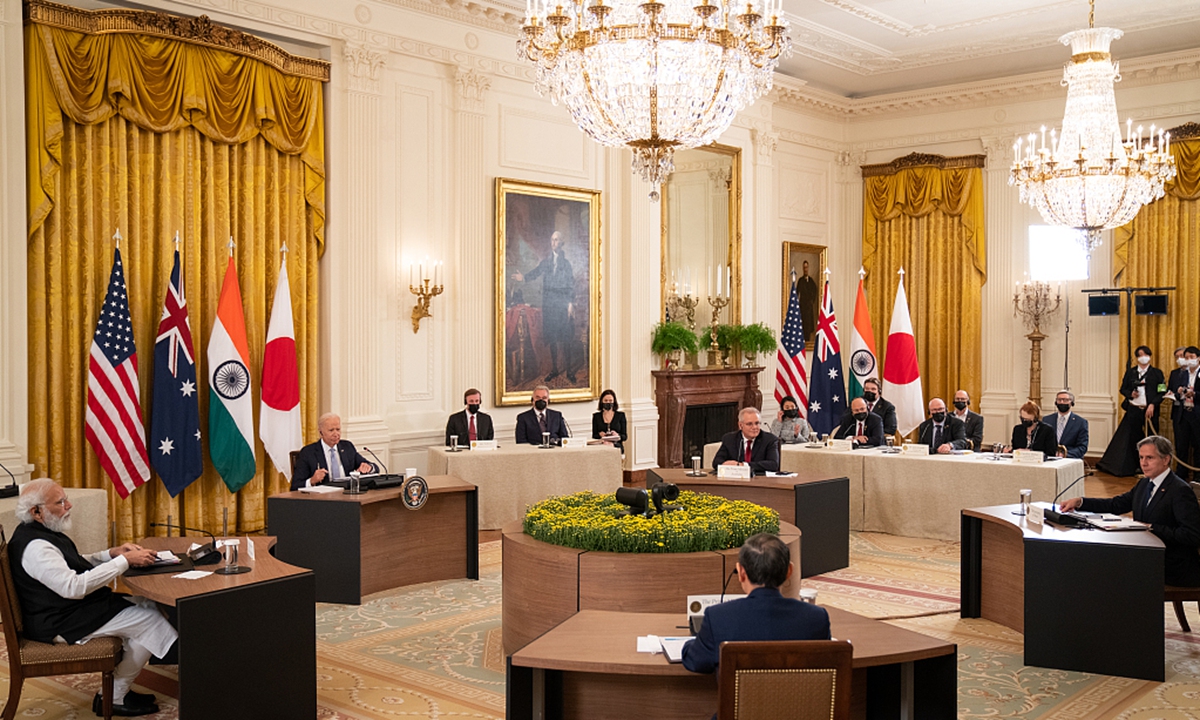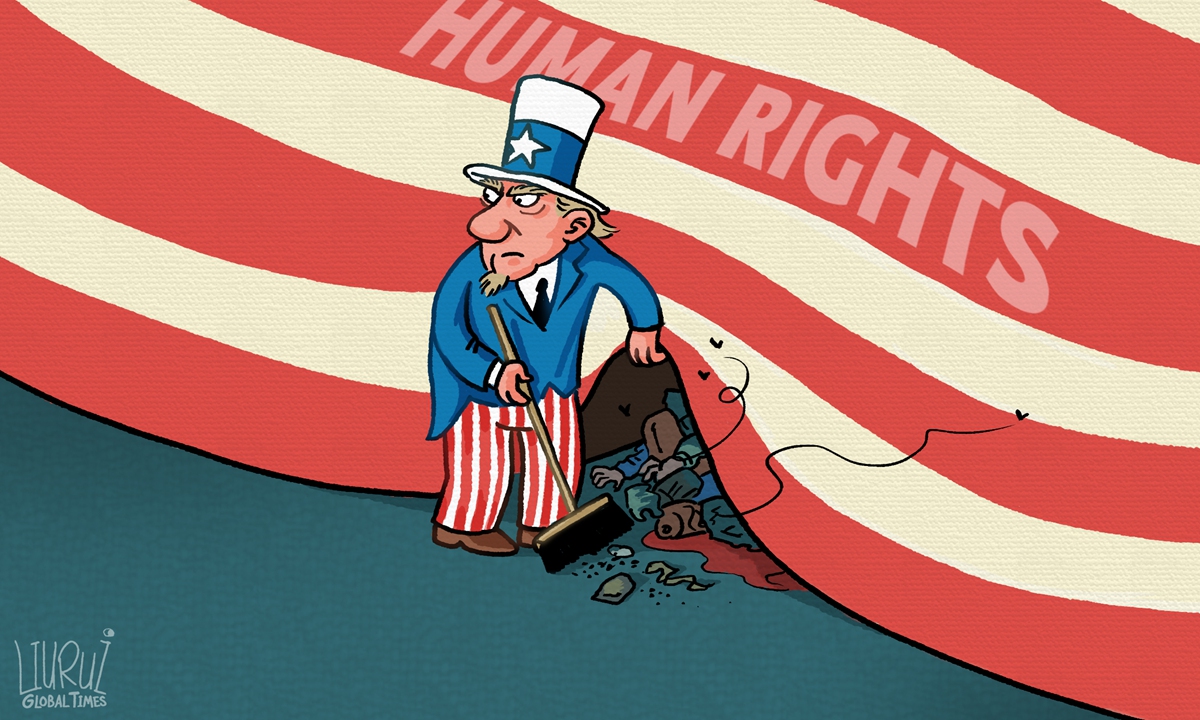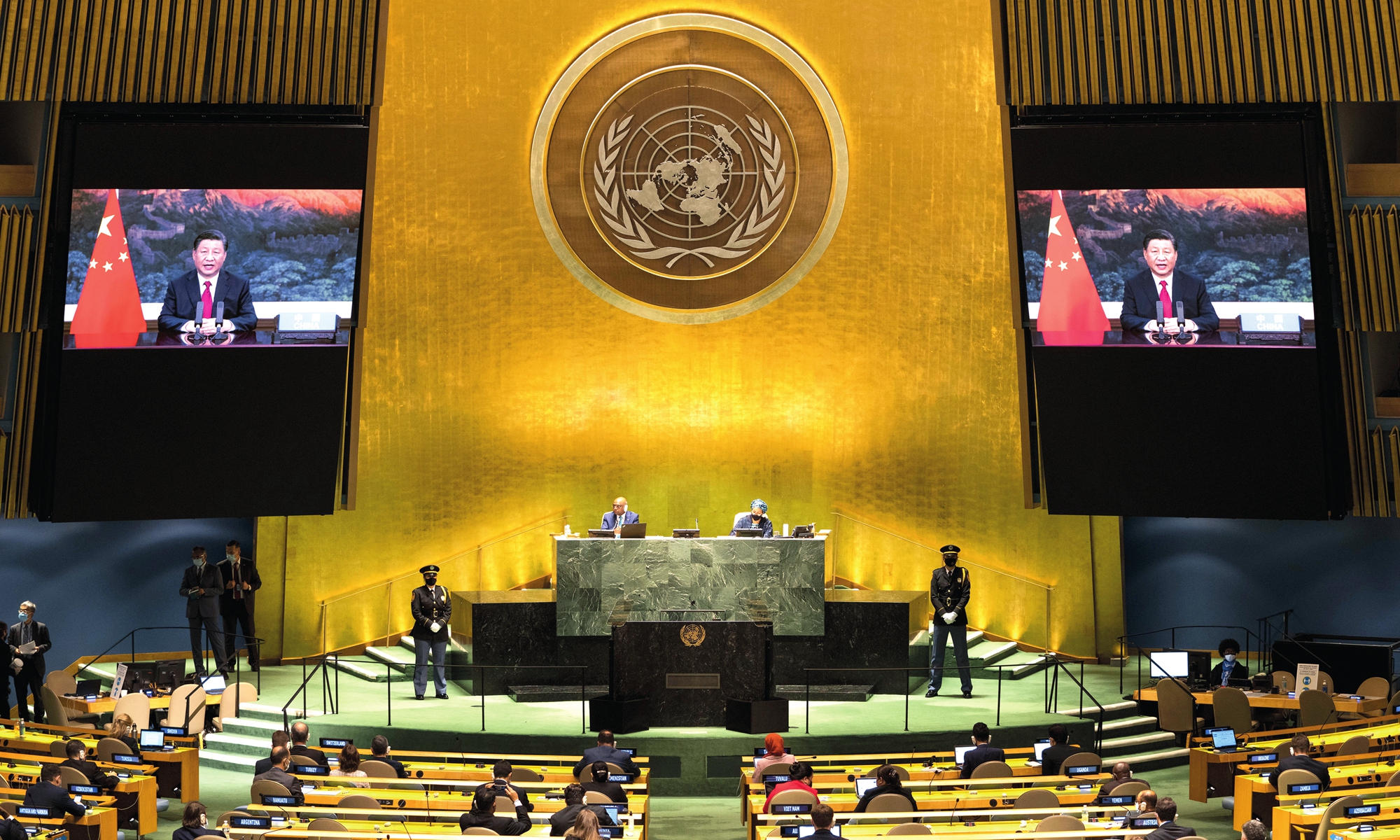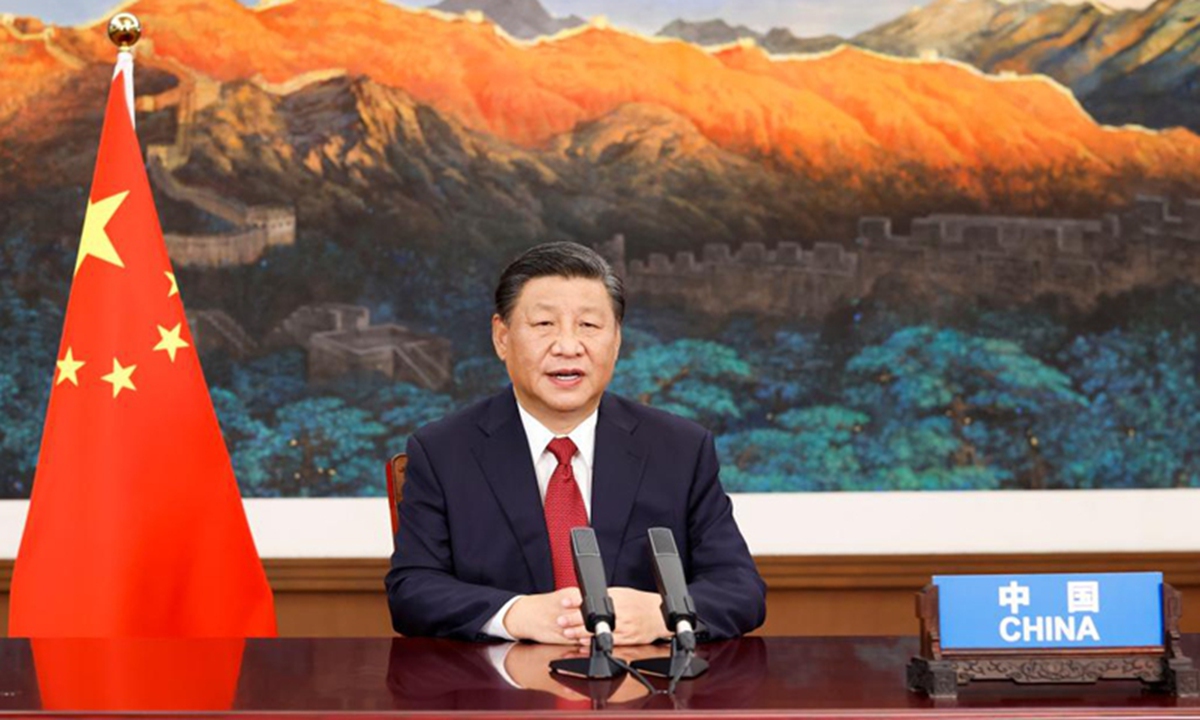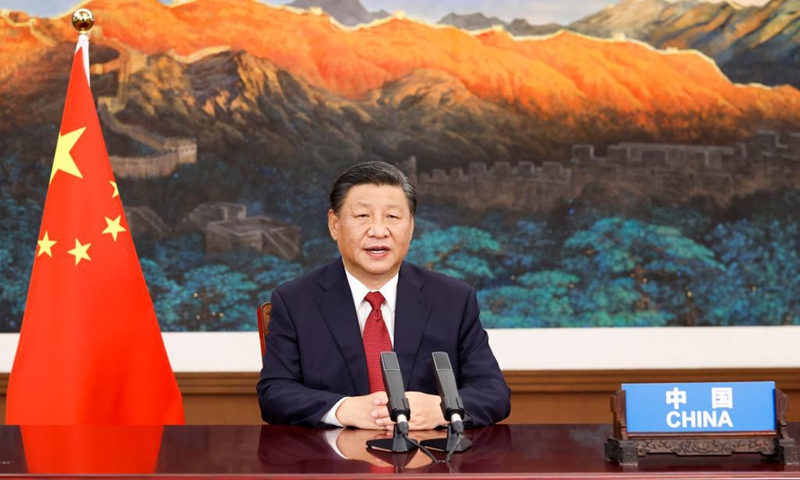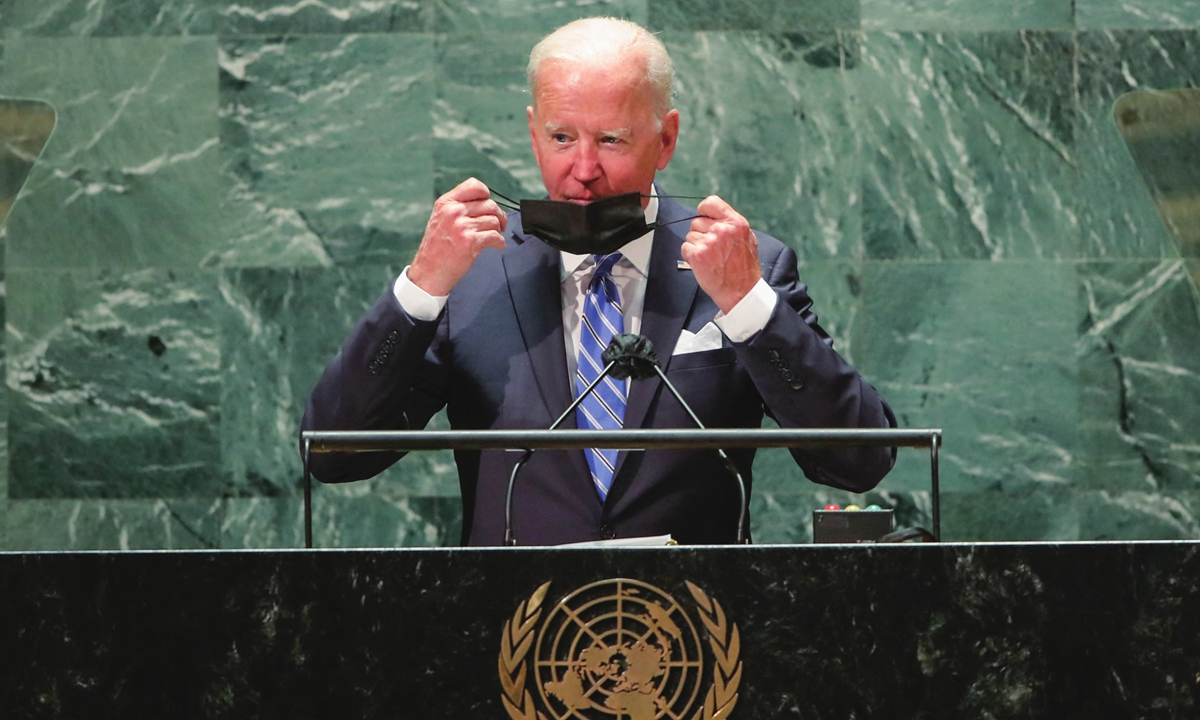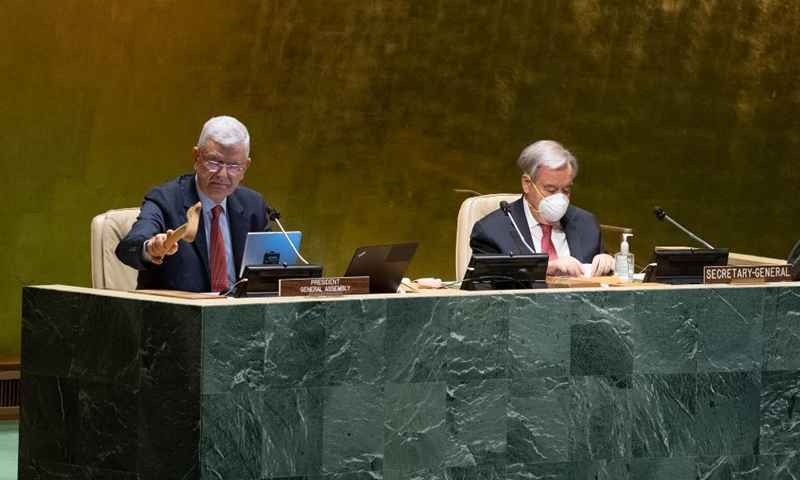AUKUS: a blunder follows a mega mess - New Age:
US president Joe Biden speaks on national security with British prime minister Boris Johnson and Australian prime minister Scott Morrison in East Room of the White House in Washington, DC on September 15. — Agence France-Presse/Brendan Smialowski -

US President Joe Biden, in announcing on video the Australia, the United Kingdom and the United States (Aukus) pact
What does the Aukus deal for Asia?
The Aukus military alliance essentially signals to the world that
money spent on real war is preferred to money spent on social justice at
home and concerns for people and planet.
LAST week, US President Joe Biden, in announcing on video the Australia, the United Kingdom and the United States (Aukus) pact, called Australian Prime Minister Scott Morrison “that fellow from Down Under” in what appears to be a senior moment.
Considering that the military alliance has upset a lot of people from China, France and even their own commentators should not have been surprising.
Has Australia, one of the four advanced Organisation for Economic Co-operation and Development or OECD countries from the Asian region (Japan, South Korea and New Zealand) seriously thought through Aukus implications on her Asian neighbours?
First, do eight nuclear submarines by 2040 make serious military sense for Australian security?
We can understand that a maritime power in the South Pacific with lots of coastal waters to patrol needs a strong navy.
But as former Prime Minister Paul Keating rightly pointed out, China is a land-based power and being over 3,200km away from Australia, does not present a military threat to Australia.
Assuming that the nuclear submarines will be similar to those planned by the United States, which will acquire 12 of the Columbia class nuclear submarines for US$128bil (RM535bil) by 2030 (the US Government Accountability Office), Australia may be paying at least US$85bil (RM355bil) for equipment that may be obsolete by the time they come onstream.
By 2040, even the US director of National Intelligence has admitted that China’s gross domestic product or GDP (22.8% of world GDP) would outclass the United States (20.8%). Twenty years is a long time to improve defences against submarine attacks.
Submarines have at best deterrent effects under conventional warfare, but their real threat comes from carrying nuclear missiles. But even the potential of carrying such missiles would invite enemy nuclear retaliation.
This is exactly why Asean countries like Malaysia and Indonesia showed serious concern that the Aukus deal may become a catalyst to the nuclear arms race.
If that is the case, Australia would lose her status as a haven for nuclear-free living, something that New Zealand cares seriously about, which is why she distanced herself from the deal.
Second, which businessman would spend nearly the same amount of money that he earns to point a gun at his best customer?
China imported US$100bil (RM418bil) in 2020 from Australia, with the latter earning a trade and service surplus of USS$55.5bil (RM235bil).
Then to spend US$85bil (RM355bil with likely huge over-runs based on past experience) on defence against your top trading customer defies business logic.
Third, the Anglosphere military alliance created a split with Europe, already sore after Brexit and Kabul. France is not only the first foreign ally (helping in the US Independence War against Britain) of the United States, but also has serious Indo-Pacific interests with 93% of her maritime economic exclusivity zone (10.2 million sq.km) – the second largest in the world – located there.
Fourth, you have to ask whether Australian military intelligence is an oxymoron when it recently ordered 70-tonne US Abram tanks that are too heavy to carry by train across Northern Territory bridges nor by road to defend the northern Australia coast.
Climate change
Her Asian neighbours would be much happier if Australia took the lead in the Asia-Pacific region on climate change, rather than spending on arms.
Amongst the rich countries, Australia has the highest per capita emission rate, similar to the United States.
But out of 200 countries, Australia ranks fifth or sixth as the biggest global emitter, so her voice on fulfilling the requirements of the Paris Accord matters.
Unfortunately, given the huge influence of the mining lobby, Australia may not even achieve her Paris agreement to cut emissions by 26% to 28% below 2005 levels by 2030, let alone improve on that commitment by the 26th session of the Conference of the Parties or COP26.
Australia may be rich enough to mitigate against her own risks of climate warming, but the effect of climate change on her neighbours, particularly the Pacific Islands is going to be devastating.
In 2019, Pacific island nations such as Fiji, Kiribati, Nauru, Micronesia, Marshall Islands, Solomon Islands, Vanuatu, Timor Leste and Tonga declared that by 2030, their land could become uninhabitable by rising seas, water salination, reef destruction and more natural disasters.
Biodiversity decline
The latest World Bank model suggests that the global decline in biodiversity and collapse in ecosystem services such as wild pollination, food from marine fisheries and timber from native forests could result in US$2.7 trillion (RM11 trillion) decline in global GDP by 2030.
The injustice is that the poorest countries, including those in Asia-Pacific will bear most of such eco-system and GDP losses.
In particular, many indigenous people who depend on nature will bear the costs of loss of habitat and livelihood.
Why are we not surprised that on Sept 13, 2007, when the United Nations Declaration on the Rights of Indigenous Peoples was adopted by 144 member countries, the four votes against were the Anglosphere countries of Australia, Canada, New Zealand and the United States? In all four rich countries, the record of treatment of the indigenous people have been shameful, such as the unmarked graves of indigenous school children in forced assimilation schools in Canada.
Human rights
According to Human Rights Watch, aboriginal and Torres Islander people comprise 29% of the Australian adult prison population, but just 3% of the population.
In the United States, states with large native populations have incarceration rates for American Indians of up to seven times that of whites.
The Aukus military alliance essentially signals to the world that money spent on real war is preferred to money spent on social justice at home and concerns for people and planet.
Who really profits from the nuclear submarine contract?
Look no further than the exclusive submarine suppliers such as General Dynamics (from the United States) and British Aerospace.
The Aukus deal confirms essentially that Australia opts to sink or swim with their rich Anglosphere few, rather than the global many.
Who said the world was fair?
Andrew Sheng writes on global issues from an Asian perspective. The views expressed here are the writer’s own
.
Tan Sri Andrew Sheng (born 1946) is Hong Kong-based Malaysian Chinese banker, academic and commentator. He started his career as an accountant and is now a distinguished fellow of Fung Global Institute, a global think tank based in Hong Kong.[1] He served as chairman of the Hong Kong Securities and Futures Commission (SFC) before his replacement by Martin Wheatley in
Related:
Exclusive: China has taken reciprocal countermeasures against UK Parliament's ban on ambassador, ... China has taken reciprocal countermeasures regarding the UK Parliament's banning of Chinese ambassador from attending events in the Parliament last ..
65 countries express opposition to interference in China's internal affairs at UN ...
Pakistan, on behalf of 65 countries, delivered a joint statement against interference in China's internal affairs under the pretext of ...
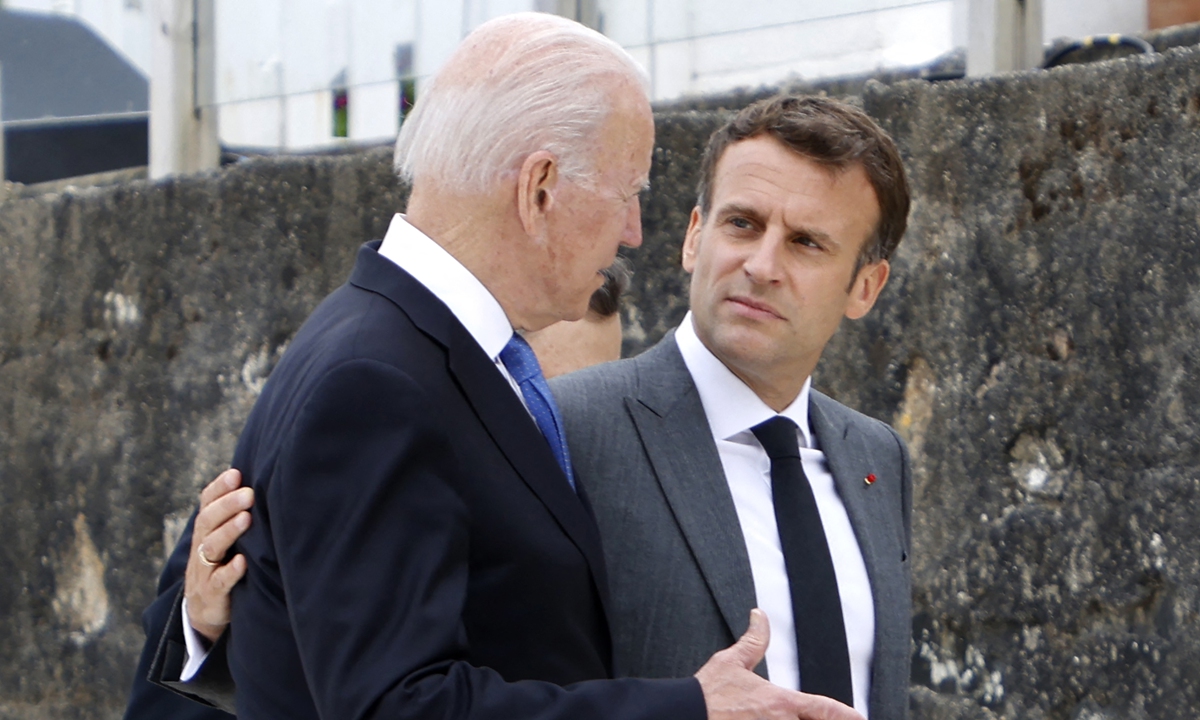 Furious Paris calls scrapped deal a ‘stab in the back’Biden, Macron discuss sub row
Furious Paris calls scrapped deal a ‘stab in the back’Biden, Macron discuss sub row
https://www.globaltimes.cn/page/202109/1234943.shtml
China, others reveal negative impact of Western unilateral coercive measures on human rights
At a side meeting of the 48th session of the UN Human Rights Council on Wednesday, permanent missions of 10 countries including China discussed the serious violation of human rights caused by unilateral coercive measures by the US and other Western countries, urging them to abolish such actions immediately.
Related posts:
https://youtu.be/6XVxdoHoMBM The world needs to prepare for the arrival of the coming nuclear submarine craze The Ohio-class ballis..
Moral vacuum at the heart of modernity, now embodied in US laws!
` ` MAN and nature are running out of time. That’s the core message of the UN Inter-governmental Panel on Climate Change ...

Moral vacuum at the heart of modernity, now embodied in US laws!
THE GLOCALISATION OF HUMANITY

